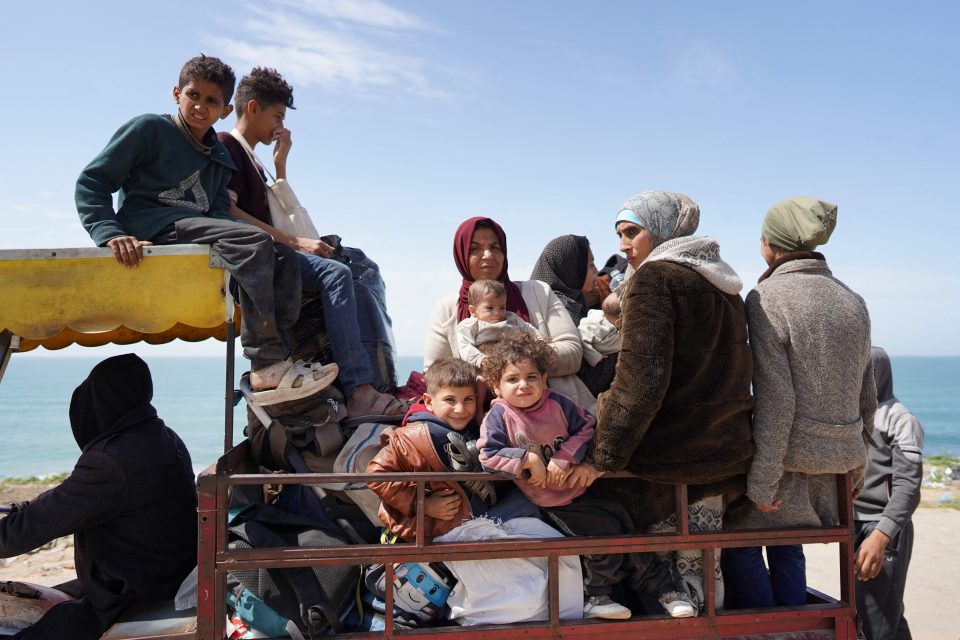
Israel’s army was on Thursday four days into a raid at Gaza’s largest hospital, where the military says Hamas was operating from among patients and displaced civilians.
Here is what we know about the fighting at and around Al-Shifa medical centre that the Israeli army says has killed more than 140 Palestinian militants.
– The raid –
The Israeli army announced at 0100 GMT on Monday that it had launched an operation on the Gaza City hospital targeting senior Hamas militants.
Witnesses reported air strikes and tanks near the sprawling complex crowded with Palestinian patients and displaced people.
The army and the Shin Bet security service said Israeli forces had “identified terrorist fire toward them from a number of hospital buildings”.
AFP images showed black smoke billowing from bombarded areas around the hospital, with Palestinians fleeing along rubble-strewn roads as others treated the wounded in the street.
Since fighting began in Gaza in October, thousands of people had sought shelter in Al-Shifa hospital, many of whom are still there, according to witnesses interviewed by AFP.
Israel has repeatedly said the complex housed an underground Hamas control base, which the militants have denied.
Israeli troops previously raided Al-Shifa in November, sparking an international outcry.
– Current situation –
Israeli soldiers and Palestinian fighters have clashed in and around Al-Shifa since Monday, according to the army, which has reported killing more than 140 Palestinian fighters.
The army identified one of them as Hamas internal security official Fayq al-Mabhouh, saying that “weapons were located in the room adjacent to where he was eliminated”.
Hamas authorities accuse the army of having killed “dozens of displaced people, patients and medical staff”.
In a video published Wednesday, Israeli armed forces spokesman Rear Admiral Daniel Hagari said “until now, no civilians, doctors, medical teams, none have been hurt”.
Witnesses said the fighting has caused considerable damage.
Mariam, a 42-year-old patient, told AFP that shelling hit the maternity and internal medicine ward where she was staying on Wednesday night.
“They asked us at around dawn with loudspeakers to go out or they would bomb the building” while they were inside, she said, speaking on condition that her full name not be used.
“We cannot go to the bathroom,” she added. “We use buckets and pots to relieve ourselves.”
– Arrests –
Hagari said Wednesday that the military had arrested 200 people it identified as militants, and was investigating 350 more suspects.
Mariam, the patient, told AFP that Israeli forces “took all the men and young people over 16 years old, even the physically disabled and the injured”.
She said the men were ordered to take off their clothes and go outside, charging that “they beat them with rifles and shot at them”.
Contacted by AFP about mistreatment of young men at Al-Shifa, the Israeli military said it was working “to identify unusual cases that deviate from what is expected of IDF (army) soldiers”.
“Those cases will be arbitrated, and significant command measures will be taken against the soldiers involved”, it added.
Younes, a 60-year-old patient who also spoke on condition his full name not be used, told AFP he was taken outside without clothes and was blindfolded before being interrogated and then released.
The soldiers, “beat all the young men and arrested them,” he said.
Qatar-based broadcaster Al Jazeera said Monday that Israeli forces had arrested and beaten its correspondent Ismail Alghoul at the hospital, and had destroyed his broadcast vehicle and equipment.
The correspondent later told the network he had been detained for about 12 hours and stripped of his clothes and blindfolded with his hands bound.
– Truce talks –
The Shifa operation began on the same day Israel sent a delegation to Doha for negotiations of a truce and the release of hostages held in Gaza after Hamas’s October 7 attack.
Israel’s army chief Herzi Halevi said Thursday after assessing Al-Shifa that the operation was “very important for pressuring Hamas, it’s very important for pressuring the negotiations”.
Qatar-based Hamas chief Ismail Haniyeh charged on Tuesday that the operation had revealed an “endeavour to undermine ongoing negotiations in Doha”.







